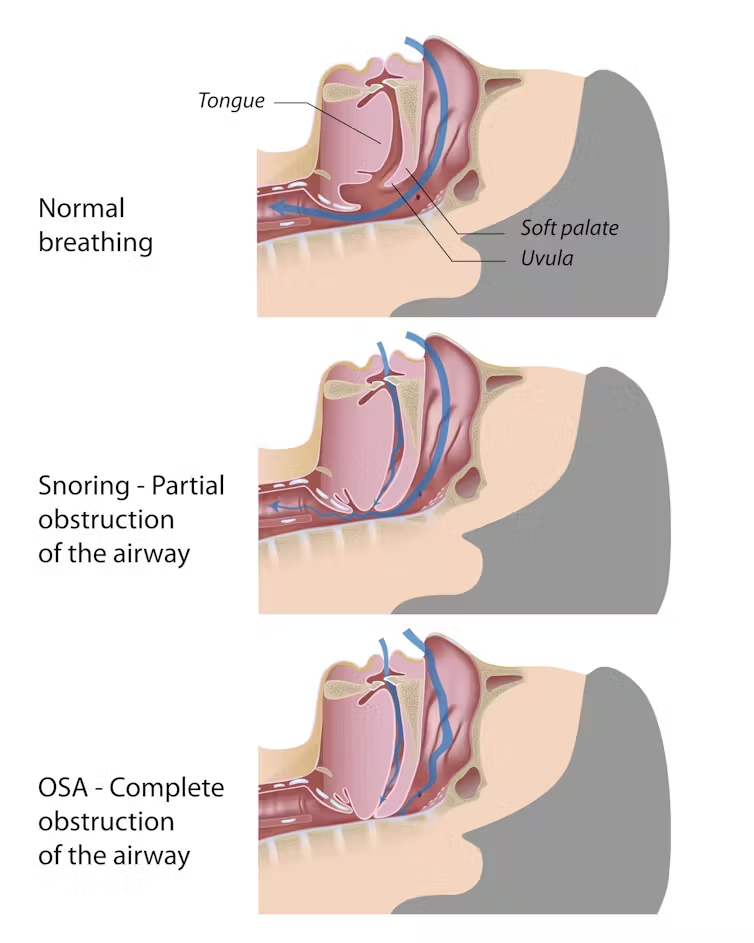This is how the AI article summary could look. Lorem ipsum dolor sit amet, consectetur adipiscing elit, sed do eiusmod tempor incididunt ut labore et dolore magna aliqua. Ut enim ad minim veniam, quis nostrud exercitation ullamco laboris nisi ut aliquip ex ea commodo consequat.
Why do people snore?

Snoring occurs when tissues in the upper airway (like the soft palate and uvula) vibrate as air rushes past them during sleep, often due to relaxed throat muscles and a narrowed airway.
Here’s a more detailed explanation.
Relaxed throat muscles
During sleep, the muscles in your throat and mouth relax, which can cause the soft palate and uvula (the fleshy part hanging from the soft palate) to sag and narrow the airway.
Vibrating tissues
As you breathe, air lows past these relaxed tissues, causing them to vibrate, producing the snoring sound.
Factors that contribute to snoring
- Anatomy: A small chin, short neck, low, thick soft palate, or a long uvula can narrow the airway.
- Weight: Being overweight can lead to excess tissue in the neck and throat, which can further narrow the airway.
- Alcohol: Alcohol consumption before bed can relax throat muscles, increasing the likelihood of snoring
- Sleep Position: Sleeping on your back can cause your tongue to relax toward the back of your throat, potentially obstructing the airway.
- Nasal Congestion: Nasal congestion from allergies or a deviated septum can also contribute to snoring.
- Medications: Certain medications, like sedatives or muscle relaxants, can relax throat muscles, making snoring more likely.
- Age: Snoring becomes more common as we age because muscle tone decreases, causing our airways to constrict.
- Sleep Deprivation: Inadequate sleep can lead to heightened throat relaxation, potentially exacerbating snoring.
